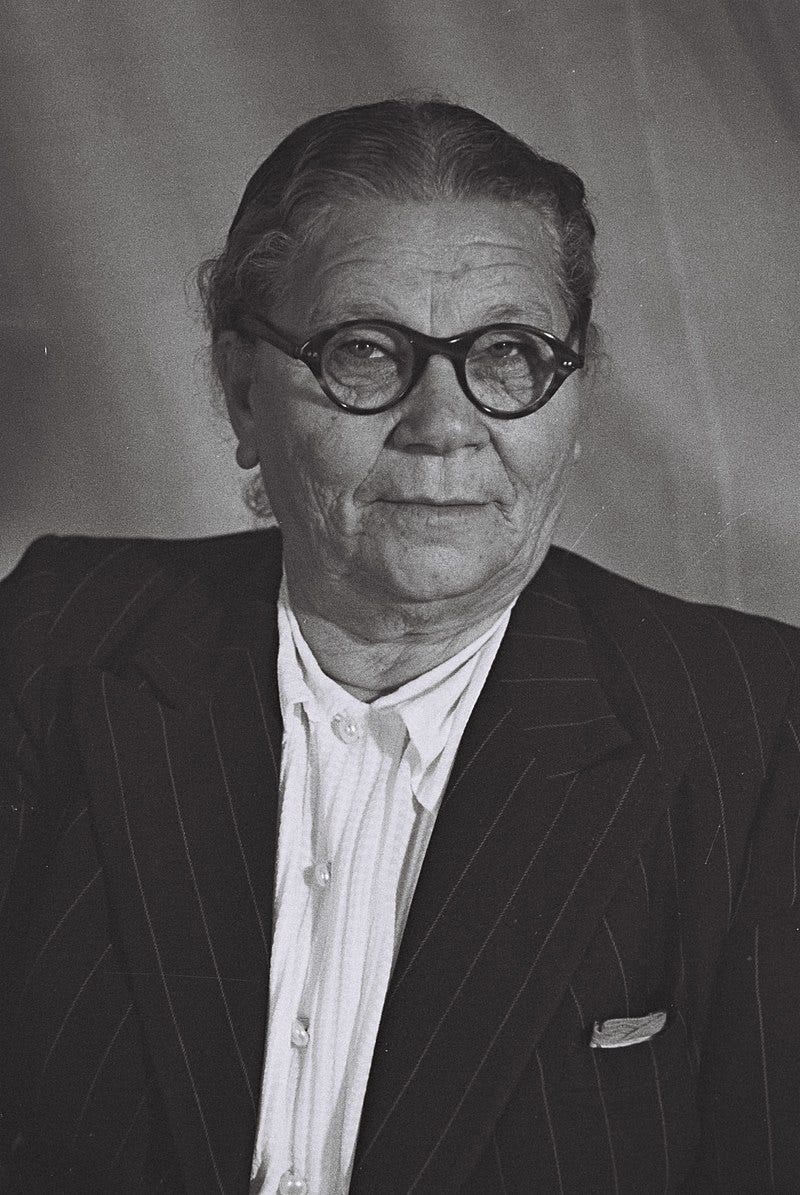Ayanot: Proving Women as Equals in Building the Nation of Israel
Ada Maimon, one of the spiritual mothers of the Jewish state, founded Ayanot, a women’s collective farm.
Walking around the streets of Tel Aviv, it’s hard to imagine that a mere 75 years ago, less than a lifetime ago for my grandmother, it did not yet exist. The Israel we dreamed of; the Israel we longed for; the one we said we would be in, next year, at the end of every Passover Seder for our years in exile, looked very little like the country you see today when leaving Ben-Gurion Airport when the United Nations passed the declaration creating the modern State of Israel in 1948.
During the first (1881-1903), second (1904-1914), and third (1919-1923) Aliyahs, when Jews, fed up with the persecution they were experiencing, predominantly in Eastern Europe, disembarked from their ships in a desert swamp. They traded the cities and starvation in Russia for sand and malaria in the land of milk and honey. These first and second waves of return to our ancestral homeland brought men and women motivated less by an allegiance to Torah and more by a strong desire to live in a world of their own making.
For the Halutzot, the female pioneers of the second and third Aliyahs, Israel offered a particular promise. The pioneers, male and female who planned and practiced for their new world in backyards and basements in Russia, believed in a philosophy of total equality. But upon arriving in the British Mandate of Palestine, breaking free of the traditional perceptions of women proved more difficult. Quickly the Halutzot were relegated to classically female tasks and attempts to join in what were considered male pursuits were often met with derision.
Wanting to be in the fields tolling the soil and not relegated to the kitchens, the Halutzot learned the lesson learned by women of each generation: to be excellent at that at which men are average. And so they did.
They did this through the Ayanot, a women’s collective farm founded by Ada Maimon, one of the spiritual mothers of Israel. For a decade, beginning in 1932, Halutzot, ready to be part of building modern Israel, came to the Ayanot for an average of two years to study a wide variety of agriculture for going out to work at the different kibbutzim and farms across Israel. Over 2,000 women came through the Ayanot during its existence, the majority of whom went on to work the land.
Women have an important place in revolutions. We are so rarely talked about in that context, despite so often being the tipping point. International Women’s Day, which we celebrated on March 8th is an example of this, marking the day when women in Russia decided they could no longer wait hours in line for bread and that change needed to happen now. Building a modern nation is a form of revolution, and women have been part of it from the beginning.
Eretz Israel is the culmination - a strange thing to say about a country that is growing and changing and anything but an endpoint - of years of dreaming while facing persecution and oppression across the world. For Ada Maimon and the other women involved in developing the Ayanot, it was an opportunity to prove all that women are capable of and to see the precedent they set solidify the role of women as equal participants in the development of a nation.





